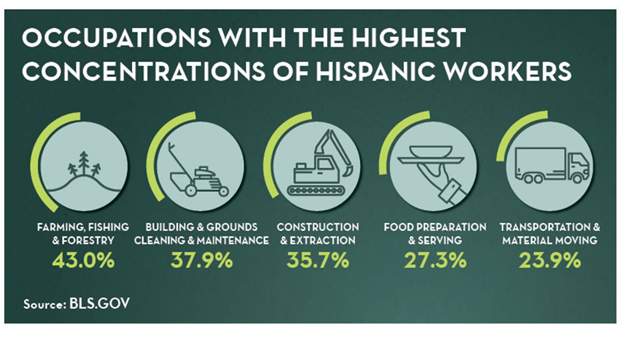A new study looks at a variety of ways in which California’s “youngest and fastest growing workforce,” made up of Latinos, is being challenged by the state’s environmental goals.
"Latinos now make up 40% of the state's population and over half of the individuals that are 18 and under,” said Soledad Ursua, the lead researcher of the “El Futuro es Latino" report, during an interview with Agri-Pulse. “So, if Latinos do well, California does well.”
But she said California’s climate policies, combined with other factors, are making it increasingly difficult for Latinos to be upwardly mobile or start their own businesses in areas like trucking and agriculture.
The report, which was published by Chapman University's Demographics & Policy department, also looks at education, housing and policy issues confronting Latinos, with input from authors Jennifer Hernandez (housing), Karla López del Rio (policy), and Sen Gloria Romero (Ret.) (education).
It’s easy to be “in the know” about what’s happening in Washington, D.C. and around the Coast. Sign up for a FREE month of Agri-Pulse news! Simply click here.
“Following World War II, that's when California really became the leader in defense spending and all the big players were here. My aunt was just a cotton picker. And she eventually transitioned from the field to the factories, and that was significant upward mobility. Today, she owns a home in Pomona,” Ursua noted.
With globalization and new policies focused on zero carbon, she said people like her aunt aren’t as likely to achieve “the American dream” because many factories have left the state and small businesses are burdened by higher costs.

“Clean air is something that we all want, but unfortunately, the environmental regulations are so stringent that they impact carbon producing industries. When we look at manufacturing, agriculture, logistics and construction, these are carbon producing jobs. And when you look at the data, we found that these are they key sectors where Latinos overwhelmingly work,” Ursua said.
The report also looks at the political impact Latinos could have, but Ursua said she was surprised to learn that there were some 4 million eligible voting age Latinos in California that did not vote.
“Unless Latinos understand that they need to speak up and to vote for their own economic interests, they will not have a future and they will be priced out of California completely,” she added.
For more news, go to: www.Agri-Pulse.com


